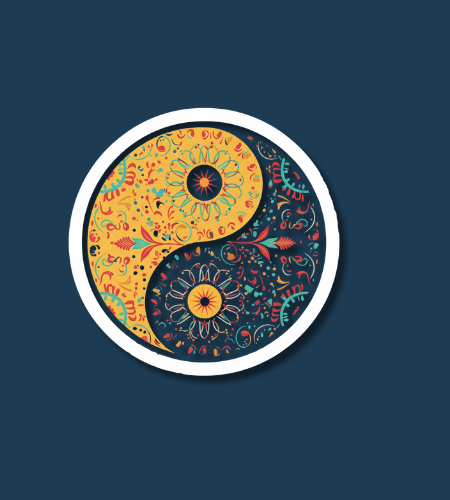Holistic Therapy Day on July 26, observed annually, encourages people to embrace healing practices that balance the mind, body, and spirit for overall well-being.
History of Holistic Therapy Day
Holistic Therapy Day draws inspiration from ancient healing traditions—like Ayurveda and Traditional Chinese Medicine—that view health as an interconnected whole. The day has been celebrated on July 26 each year to shine a light on these complementary practices alongside conventional medicine .
Hippocrates, often called the father of medicine, believed in the body’s self-healing capacity—a philosopher whose ideas echo today’s holistic approach. While modern healthcare once sidelined holistic practices, recent years have seen a revival: yoga, meditation, acupuncture, and breath-work are increasingly recognized for enhancing overall wellness.
Federation of Holistic Therapists (FHT)
- Who they are: The UK’s leading professional body for holistic practitioners—covering therapies such as massage, reflexology, aromatherapy, energy healing, and more.
- Ambassador of the movement: Each year, FHT champions International Holistic Therapy Day for its members ◆ they provide promotional resources like downloadable social media assets to raise awareness .
- Professional support: Offers training, conferences, awards (e.g., the 2025 Excellence Awards), and a quarterly magazine International Therapist . 1
Core Principles of Holistic Therapy
- Mind-Body-Spirit Connection
True healing addresses not just the body, but also thoughts, emotions, and spiritual well-being. - The Body Can Heal Itself
Holistic therapy supports the body’s natural healing ability through balance and care. - Prevention First
Focus on maintaining health through lifestyle rather than only treating illness when it arises. - Each Person is Unique
There is no one-size-fits-all — treatment is personalized to your specific needs, background, and energy. - Root Cause Over Symptoms
Rather than masking symptoms, holistic therapy looks deeper to find and heal the source of imbalance. - Therapist as Guide, You as Participant
Healing is a collaborative process — you’re an active part of your own journey.
Why is Holistic Therapy Day important?
It reminds us healing isn’t just about treating symptoms—it’s about nurturing our whole selves. Our mental stress often shows up physically, and ignoring one area can stunt recovery in another. This day brings us back to that connection.
It also empowers us to take an active role in our well-being. Whether it’s a few minutes of mindful breathing or a regular yoga practice, holistic therapy emphasizes self-care as daily practice—not a rare luxury. It’s a quiet celebration of caring for ourselves with respect and attention.
- it reminds us that mind and body are deeply linked
- it brings gentle self-care into busy routines
- it gives permission to try non-medical healing approaches
- it encourages small, sustainable wellness habits
- it celebrates ancient wisdom in modern life
How to Observe Holistic Therapy Day
Start your day with a mindful moment: a few minutes of deep breathing or gentle stretching sets the tone. Throughout the day, check in with your body—notice any tension, then pause to breathe or stretch, even at your desk.
By evening, try a relaxing holistic ritual: a warm aromatherapy bath, a calming tea, or a short guided meditation. It doesn’t need to be dramatic—just consistent. Small habits like this slowly add balance to daily life.
- begin with deep breaths or gentle movement in the morning
- try a short meditation or grounding exercise
- take mindful pauses during the day to check in
- end the evening with a soothing bath or tea
- practice grounding techniques like breath-work or meditation
- explore holistic modalities (e.g., massage, aromatherapy, Reiki, yoga)
- Commit to daily self-care: conscious eating, mindful movement, emotional check-ins
- commit to one daily holistic practice beyond today
Self-Care Steps in the Spirit of Holistic Therapy
- Practice Conscious Breathing
Start your day with 5 minutes of slow, mindful breathing — it reduces stress and balances your nervous system. - Eat with Intention
Choose whole, nourishing foods and eat slowly. Listen to what your body really needs. - Limit Toxic Inputs
Reduce exposure to negative media, processed foods, and draining relationships. Your environment matters. - Move Your Body Daily
Whether it’s yoga, walking, dancing, or stretching — movement clears emotional blocks and boosts vitality. - Create a Daily Grounding Ritual
This could be journaling, meditating, walking barefoot, or sipping herbal tea in silence. - Tune Into Your Emotions
Don’t push feelings aside. Reflect, journal, or speak to a trusted person. Emotional awareness is healing. - Prioritize Rest
Sleep is sacred. Aim for a consistent sleep routine and create a peaceful bedtime environment. - Nurture Your Spirit
Spend time in nature, read uplifting books, or explore practices like mindfulness, prayer, or sound healing. - Stay Hydrated, Consciously
Drink water throughout the day, and use that moment to pause, breathe, and check in with yourself. - Seek Balance, Not Perfection
Holistic wellness is about harmony, not rigid rules. Be kind and patient with yourself.
Holistic Therapy Day Dates Table
| Year | Date | Day |
|---|---|---|
| 2025 | July 26 | Saturday |
| 2026 | July 26 | Sunday |
| 2027 | July 26 | Monday |
| 2028 | July 26 | Wednesday |
| 2029 | July 26 | Thursday |
Subscribe to our newsletter and never miss a holiday again!

